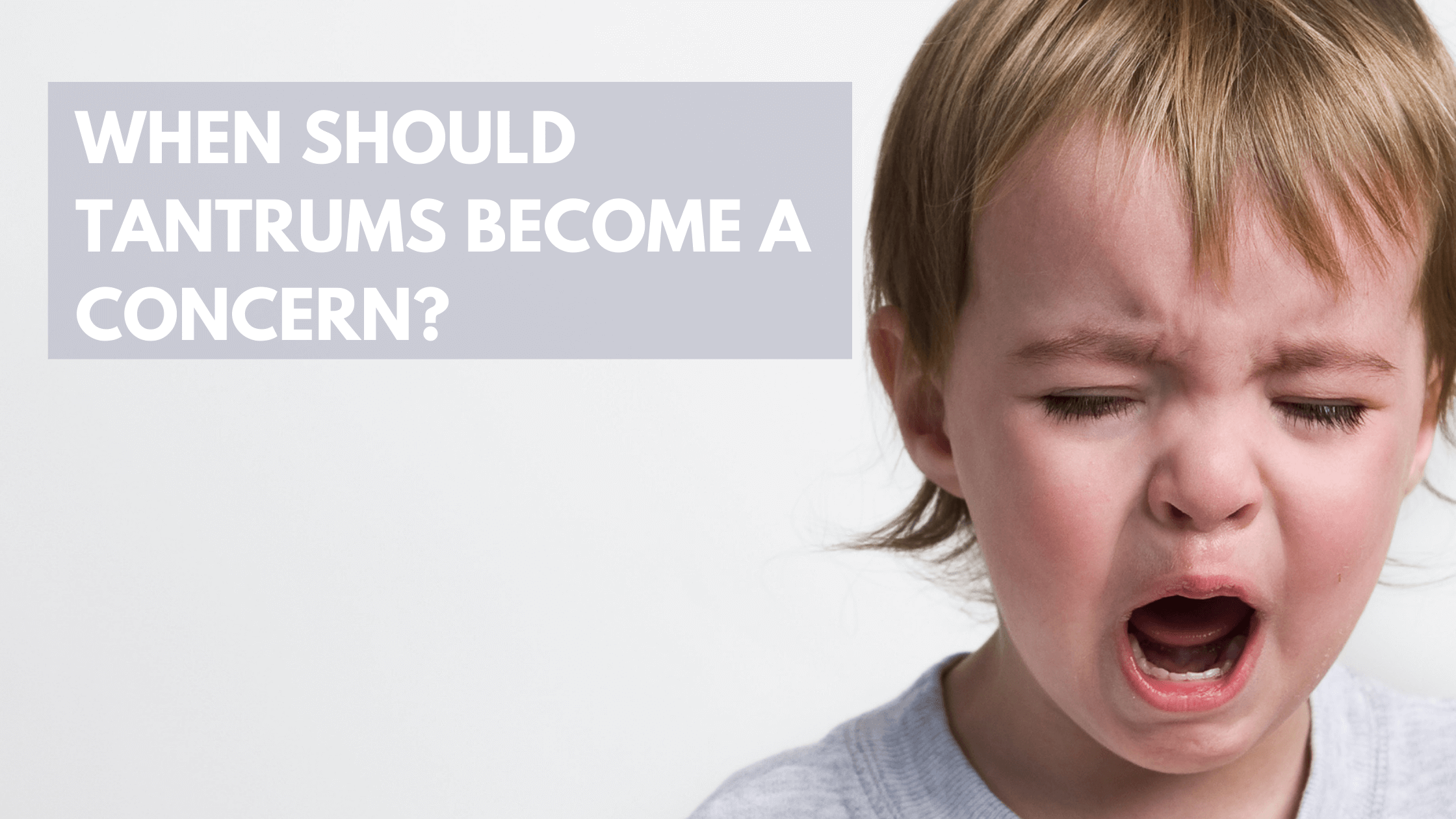Did you know that 70% of toddlers have tantrums? Tantrums usually happen between the ages of 2-3 years old (but can emerge as early as 12 months!). Toddler’s cognitive maturation leads them to crave more independence and control, but they can’t always have their way. Their language abilities may not fully allow them to communicate their emotions and they’re still learning to self-regulate to be able to manage their big feelings!
Why do kids have temper tantrums?
- They’re not feeling well! They may be tired, hungry, or feeling sick
- They haven’t built up their coping abilities and don’t know what to do with their big feelings
- They’re seeking parent’s (or someone else’s) attention
- They’re trying to get something they want or avoid something they do not want
Are there any ways to prevent tantrums?
Tantrums may be a normal part of growing up, but that does not mean that it’s easy for the parents! Here are a few strategies that you can use to reduce tantrums:
- Do a scan of your house from your child’s eye level! Are there any off-limit objects within reach? Removing these objects can prevent struggles around these items!
- Have a routine. Routines give a child a sense of control (they know what’s happening next)! and prevent them from being overly tired, hungry, or stimulated.
- Offer options. Sometimes being able to make (minor) choices help toddlers feel a bit more independent! This means fewer power struggles and fewer tantrums
- Give plenty of positive attention. Kids need attention, and negative attention from you (i.e., yelling) is attention too! Instead, have a designated few minutes each day to have a child-led play and make sure to give specific, labeled praise when they are being good!
Sometimes you may need to seek professional help…
Here are a few signs that tantrums may be getting out of hand:
- Tantrums are lasting more than 15 minutes
- Tantrums happen more than 5 times a day
- Tantrums are accompanied by aggressive behaviors towards others or themselves
- Your child continues to be moody between tantrums or takes a long time to recover after a tantrum
Please remember that BIG temper tantrums are not due to bad parenting. It usually means that there’s something else bigger going on!
For example, it could be:
- Anxiety. Kids with untreated anxiety disorders can have a hard time managing their fears. They may be engaging in tantrums to avoid having to face their fears and do not have the skills yet to calm down.
- ADHD. Kids with ADHD have difficulties with their executive functioning skills, like self-regulating. This can make them more impulsive and also lead to emotional outbursts.
- Autism. Kids with autism have more emotional dysregulation- which leads to tantrums! They can also have significant sensory sensitivities that make it easy to feel overwhelmed. Language delays (in social communication skills and often speech) makes it harder for them to communicate frustrations!
Meet Cheng

Cheng has a master’s degree from Harvard Graduate School of Education and will soon be completing her doctorate degree in clinical psychology from PGSP-Stanford Psy.D. Consortium. She is a current resident in clinical child psychology at a children’s hospital, specializing in the evaluation and treatment of neurodevelopmental disabilities (like ADHD or autism) and co-occurring diagnoses (e.g., anxiety, depression, oppositional defiant disorder). Cheng’s favorite part of her job is helping parents better understand their child’s behaviors, and empowering them with the confidence and skills to navigate raising little ones.
Cheng firmly believes that helpful, evidence-based information shouldn’t be limited to a therapy room and needs to be more accessible to families. Cheng started @parentingtheunexpected earlier this year to share about all things related to child development, mental health, and parenting. She would love to hear from you- feel free to say hi!



